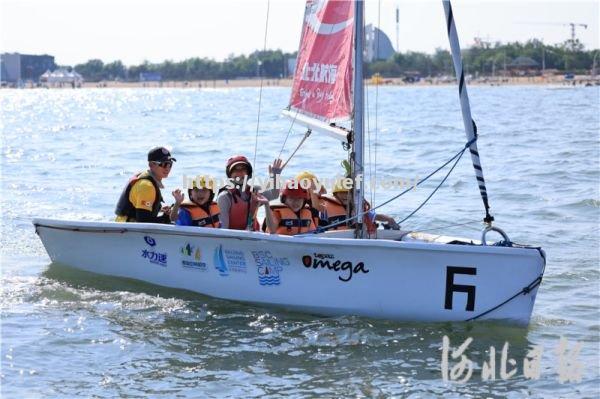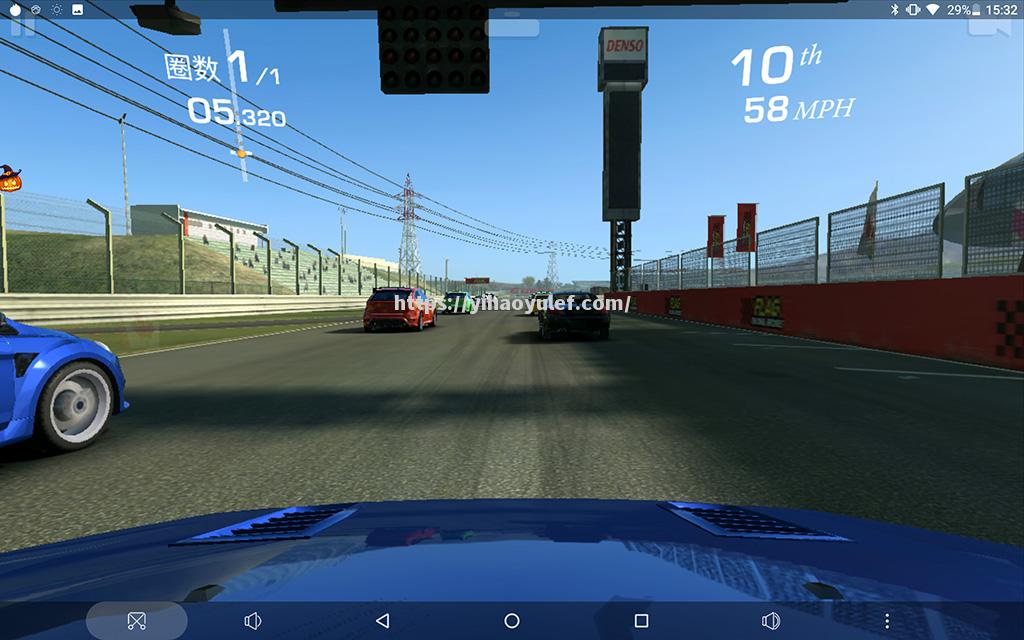Module 1 重点词组
1. “欢迎回到某地”welcome back to +地点名词
如澳大利亚帆船队夺冠成功,队员欢呼庆祝:欢迎回到学校welcome back toschool
热烈欢迎某人:give sb a warm welcome
不用谢:You are welcome
2. 首先:firstof all (放句首)
3.失物招领:lost and found
失物招领箱:lost and found box
在失物招领箱中:inthe lost and found box
4. 某人有某物:have(got)/has(got)= have/has
某处有某物:there be(is/are)
There be 澳大利亚帆船队夺冠成功,队员欢呼庆祝的be动词的单复数根据“就近原则”变化(be动词与
离它最近的主语在数上保持一致
如:(1)桌子上有一支钢笔和一些书
Thereisapenand some books on the desk. (这里要用is,因为靠近它的名词a pen,是单数)
(2)桌子上有一些书和一支钢笔
There aresome booksand a pen on the desk,.(这里用are,因为靠近它的名词是some books,是复数)
5.谁的:whose
如:这是谁的书:Whosebook is this?
这是Lucy的:It is Lucy’s
6. 在这儿/ 这儿有:Hereis/ are
如果主语是名词要用全部倒装(谓语动词放在主语之前),如果主语是代词用部分倒装
如:这儿有一封信。Here is a letter.(letter是名词,要全部倒装,letter要放在谓语动词is后)
它在这儿。Here it is.(it是代词,要部分倒装,it放is前面)
7.照顾:takecare of = look after
小心(照顾、做、处理):be careful with+名词
小心做某事:be careful to dosth
如:小心鸡蛋:Be careful with the eggs.
小心地把鸡蛋拿到厨房:Be careful to take the eggs to the kitchen.
8.从现在开始:from now on
9.男士钱包:wallet 女士钱包:purse
10.与。。。交谈:talk to=talk with+人
谈论。。。:talk about+人/物
如:我妈妈正在和我老师谈论我的学习。
My mother is talkingto/withmy teacher aboutmy study.
11.上车:geton 下车:get off
与某人相处融洽:get on/along wellwith sb
与某人相处得不好:get on badlywith sb
询问“与某人相处得怎么样”要用how提问
如:我和澳大利亚帆船队夺冠成功,队员欢呼庆祝他一直相处融洽:I always get on well withhim.
我和他一直相处得不好。I always get on badly withhim.
你与你的父母相处得怎么样?How doyou get on with your parents?
很融洽:Quitewell.
12. leave
(1)作动词:
A.“离开,动身去某地”,通常与for 连用
如:我明天动身去香港:I’m leaving for Hong Kong tomorrow.
B. “把(某人或某物)留在/遗忘(某地)”,通常后面接“地点”
如:我经常把钥匙忘在家里:I often leave my key at home。
(2)作名词:表“假期、休假”
如:我想请两天假/ 一星期假:I want to ask fortwo days’ leave./a week’s leave.
13. 这是…..的原因That’ s why +结果
如:这就是我今早没吃早餐就上学的原因
That’s why I go toschool without breakfast.(没吃早餐上学是表结果)
14.百:hundred 千:thousand
(1)如果前面有具体数字,hundred/thousand不加s,也不加of
如:二百:two hundred (hundred前面有具体数字二,所以不加s和of)
四千:four thousand(thousand前面有具体数字四,所以不加s和of)

(2)当hundred/ thousand 和of 连用时,它要用复数形式(加s)
如:成百上千:hundredsof(hundred后面有of,所以要加s)
成千上万:thousands of (thousand后面有of,所以要加s)
15.寻找:look for/ find
(1)look for 强调“找”的过程,find强调“找”的结果
如:我到处找我的猫咪,但我找不到它。
I look formycat everywhere, but I can’t find it.(到处找猫咪,表示找的过程,所以用lookfor;找不到猫咪是找的结果,用find)
(2)Look at:看look after照顾look out of 向外看
16.Is this…? 这是…?Yes,itis. / No, itisn’t.
Are these…? 这些是…? Yes, theyare. / No, theyaren’t.
如:Is this your bag?这是你的包吗?是的,它是。Yes, it is.
Are these her books?这些是她的书吗?不,它们不是。No,they aren’t。
Module 2重点词组
17.Play:弹,打,下(棋)
(1)后接乐器,加定冠词the:
如:弹钢琴/ 吉他:play thepiano/ guitar(钢琴和吉他是乐器,所以前面要加定冠词the)
(2)后接棋类或球类名词,不加定冠词the:
如:踢足球:play football 下象棋:play chess
18. would like to do sth 想要/ 愿意做某事
如:我想要和我妈妈去市场。
I’d like to go tothe market with my mother.(I’d like to = I would like to)
19. What about= How about…?怎么样?
(1)about后面可以加名词和代词
如:这本书怎么样?What about/ How aboutthis book?(书book是名词)
你呢?What about/ Howaboutyou?(你you是代词)
(2)about是介词,后面加动词,要用ing形式
如:休息一下怎么样?What about/How about havinga rest?(休息是动词,所以接在about
20. worry about:担心,担忧
(1)后加名词和代词:
如:不用担心汉语Don’tworry aboutChinese. ( 汉语Chinese是名词)
我父母总是担心我。My parentsalways worry about me.(我me是代词)
(2)后加动词要用ing形式,因为about是介词
如:别担心游泳Don’t worry about swimming.
21. teach教
(1)教某人某物:teach sb sth (sb是代词时要用宾格)
如:这学期谁教我们数学?Who teaches us maths this term?(us我们是人,要用宾格;数学math是物)
(2)没有teach sb to do sth
22.骑自行车:ride a bke:打乒乓球:play table tennis:
说中文:speakChinese 在布告牌上:on the board
仅此而已: that’s all 你呢?what about/ How about you?
我喜欢做饭:Ilike cooking。课间:between lessons
23. 跑得快:runfast 擅长:be good at 对。。。有好处:be good for
在每场比赛中取得最好的分数:get the best score in every match
24. 帮助help
(1)加动词:help sb (to)dosth帮助某人做某事
(2)加名词:help sb with sth帮助某人做某事
如:大明帮我学英语
Daming helps me (to) learn English.(学learn是动词,所以用(to)do sth)
Daming helps me withmy English.( 英语english是名词,所以用with)
25.start开始
(1)做名词:如:开学之初:the start ofthe new term
(2)做动词:startto dosth= start doingsth 开始做某事
如:学生开始唱歌。The students start to sing.= The students start singing.(唱歌是动词)
26.准备/ 乐于做某事:be ready to dosth
为。。。做好准备:be ready for sth
如:她总是乐于助人。She is always ready to help others . (帮助help是动词,用todo sth)
我们为春节做准备。We are readyfor the Spring Festival.(春节时名词,用for)
27. 选某人作为:choose…as/for…
如:我们选大后要用ing形式)明作为班长。We chooseDaming as/ forour monitor.
28. 承诺、保证、答应:promise
(1)加名词:promise sb sth = promise sth to sb 向某人承诺某事
如:他答应给我这本书。He promise me the book.= He promise the book tome.
(2) 加动词:promiseto dosth承诺做某事
如:他承诺帮助我们。He promises to help us。
29. 健康的(形容词):fit= healthy 健康(名词):fitness= health
保持健康:keep/ stay fit= keep/ stay healthy
30. 做某事:do+(some)+ V-ing
打扫卫生:do some cleaning 看书:do some reading
买东西:do some shopping 洗衣服:do some washing
31. 每个人:everyone= everybody 做主语时,谓语动词用单数
如:每个人都在这。Everyone / everybody ishere.
每个人都喜欢运动。Everyone / everybodylikessports.
32. besure 确定的,确信的
(1)besure+宾语从句(有主谓宾):确信某事一定会
如:我确信他住在北京。I am sure he lives in Beijing. (he lives in Beijing是从句)
(2) besureof/ about+名词、动名词(V-ing):“确信。。。”,“对。。。有把握”
如:我确信会成功。I am sure of/aboutsuccess (成功suceess是名词,所以用of/ about)
Module3重点词组
33. 在周末:at/ ontheweekend或at/onweekends
在工作日:on weekdays
34.else“其他的,另外的”
要放在疑问代词(who谁,what什么t,which哪个),不定代词(something有些东西,anything任何动词,nothing没有动词,someone有些人,anyone任何人,everyone任何人,)疑问副词(when什么时候,where哪里,how怎么样)的后面。
如:你还想要别的什么吗?What elsedo you want?(what是疑问代词,else要放在其后面)
别的什么都不要澳大利亚帆船队夺冠成功,队员欢呼庆祝了。Nothing else(nothing是不定代词,else要放其后面。
35.结构“have+名词”
have a seat 坐下have a walk散步have atalk 谈话
have a look 看一看have a rest 谈话have a try试一试
have a class / lesson 上课have a good time玩得高兴
have ameeting开会have a picnic 去野餐
36.检查某人的邮件:checkone‘s(某人的)email
如:检查我的/你的/他的/她的/大明的邮件check my/your /his/ her/ Daming’s email
37. 上钢琴课:have a piano lesson 看电影:see a movie
帮忙做家务:help with the housework 复习功课:go over lessons
还有谁:who else 独自呆在家里:stay at home alone
别傻澳大利亚帆船队夺冠成功,队员欢呼庆祝了:Don’t be silly。一个极好的周末:a fantastic weekend
38.具体到某一天用介词on:在星期六早上:on Saturday morning
39.你想要加入我们吗?Would you like to join us?
40.Plan计划:
(1)作名词:制定一个。。。的计划:make a plan for
如:制定一个周末的计划:make a plan for the weekend
(2)作动词:计划做某事:plan to do sth
如:这个周末我计划去踢足球:I plan to play football this weekend。
41.期待,盼望look forward to
(1)后加名词:我期待去北京。I am looking forward to Beijing.(北京是名词)
(2)后加动词,要用doing形式。我期望着参观长城。I am looking forward to visiting theGreat Wall.(参观是动词,所以用visiting)
42. 希望:hope
(1)后加动词,要用不定式(to do ):希望做某事hope to do sth
如:我希望去北京。I hope to goto school。(去是动词,所以用to do sth)
(2)后加从句(主谓宾)如:我希望你去学校。I hope you go to school.
(you go to school 是个句子,you是主语,谓语动词是go,school是宾语)
(3)没有hope sb to do sth
如:我希望你去学校。I hope you to go to school(这个句子是错的)
43. Enjoy (1)玩得开心enjoy oneself (myself/ herself/himself/ themselves/ ourselves)
(2)喜欢,享受做某事enjoy doing sth
如:我享受唱歌。I enjoy singing。(sing是动词,所以用ing形式)
44. 繁忙的:busy
忙于做某事(1)加名词:be busy with sth
(2)加动词:bebusy (in)doing sth
如:我忙于做作业。I am busy with my homework(homework是名词,所以前面用with)
I am busy (in)doingmy homework.(do做动词。所以用doing’)
45. 花费:spend,pay,take
(一)spend:(主语是人)
某人花费时间/金钱做某事:(1)sb spend time/ money onsth(名词)
(2)sb spendtime/ money (in)doing(动词)sth
如:我花了5元钱买这只钢笔。I spend 5 yuan on this pen。(钢笔pen是名词,用介词on)
Ispend 5 yuan (in )buying this pen. (买buy是动词,所以用介词in ,动词用ing形式)
(二)pay:(主语是人)
某人花费时间/金钱做某事:sb paytime/ money forsth(名词)
如:我花了5元钱买这只钢笔。I pay 5 yuan for this pen.
(三)take:(主语是物)
It takes sb.+时间/钱+to do sth.(过去式用took)
如:买这只笔花了我5元钱。It takes me 5 yuan to buy this pen.
(四)spend的第二个用法:度过
与某人度过:spend。。。with。。。
如:我和我爷爷奶奶待了两天. I spend two days with my grandparents.
(五) pay的第二个用法:支付,付钱pay for
如:我将为那本书付钱: I will pay for the book。
46. 结构“go+ V-ing”:用于体育运动或娱乐消遣
观光:go sightseeing 去游泳:goweimming
去钓鱼:go fishing 去购物:goshopping
去滑冰:go skating 去骑单车:gocycling
47. 交朋友:makefriends 足球迷:football fan
五一假期:May Dayholiday 赢得比赛:win the match
为队员欢呼:cheerthe players 穿球队衫:wear the team shirt
收垃圾:collectletter 在公园:in the park
早起:get upearly 晚起:get up late
暑假:summerholiday 去夏令营:go on a summer camp
说英语:speak English 一个澳大利亚家庭:anAustralian family
观看我们最喜欢的队:watchour favorite team
在乡村散步:take awalk in the country 在沙滩上:on the beach
Module4重点词组
48.将来:In thefuture 后加将来时 从今往后:in future
如:这个世界将来会更美好。The world will be better in the future。
49.能够:beable to= can + 动词原形
如:我能够搬动那个箱子。I can carry the box。
50.不再:not+名any more = no more+名词
如:再也不会有噪音了。There won’t be noiseany more。
There will be no more noise.
51. 需要:need
(1)做行为动词:need to dosth :有人称和时态的变化
(2)做情态动词:need dosth :没有人称和时态的变化
如:他需要喝水。He needs to drink water。(这里的need是行为动词,因为he是第三人称单数,need加了s。证明是有人称变化,所以用need to do )
He needdrinkwater。(这里的need 是情态动词,因为he是三单,没有加s,所以用动词原形)
52. 20年之后: in 20 years’ time 问老师问题:ask their teachers question
通过电话:by telephone 通过网络:byInternet
通过邮件:byemail 有许多空余时间:have a lot of free time
有许多作业:have a lot of homework 用粉笔在黑板上写字:use chalk ona blackboard
将有:there will be 将没有:therewon’t be
53. 。。。将会是什么样子?What will。。。be like?
如:我们的学校将会是什么样子?What will our schoolbe like?
....是什么样子的人?What be…..like?(询问某人的性格)
如:你妈妈是什么样子的人?What is your mother?
她很友好。She is friendly.(friendly友好的,是形容一个人的性格)
。。。长什么样子?What does/do…look like?(询问某人的外貌)
如:你哥哥长什么样子?What does your motherlook like?
他又高又瘦。He is tall and thin.(tall andthin 又高又瘦形容一个人的外貌
54. 上升,升起:rise,riseup
如:傍晚月亮从东边升起。In the evening, themoon rises in the east.
气球缓缓升上天空。The balloon rises upslowly into the air。
55. 也:aswell ,too ,also 也不:either(用于否定句)
(1)放在句末,as well, too(前有逗号隔开)
如:大明也去青岛。Daming goes to Qingdaoas well. (as well 放句末,不用逗号隔开)
Daming goes to Qingdao, too.(too放句末,用逗号隔开)
(2)放在行为动词前面,be动词,情态动词和助动词后面
如:我也想去学校。I also wantto go to school。(想want是个行为动词,also放其前面)
我也是个学生。I am alsoa student。(是am是个be动词,also放其后面)
我也能去学校。I canalso go to school. (能can是个情态动词,also放其后面)
(3)用于否定句:either
如:我朋友也不去那里。I won’tgo there either.(这里是否定句,所以用either)
56. 乘坐交通工具:take/ by
(1) by 后不加任何冠词,take 后加定冠词the/a
乘坐公交车/汽车/飞机/轮船/火车/海路/陆路:by bus/ by car/ byplane/ by ship/ by train/ by subway/ by taxi
走航空/ 海路/ 陆路:by air / by sea / by land
(2)乘坐公交车/汽车/飞机/轮船/火车/海路/陆路:take a bus/ take a car/ take aplane/ take a ship/ take a train/ take a subway/ take a taxi
57. “做某事是。。。的”:It’s + adj。(形)+to dosth(It是形式主语,to do后面是真正的主语)如:跟他相处很容易。It iseasyto get onwith him.= Toget onwith himis easy.(It是形式主语,“easy容易的”是形容词,真正的主语是to get on with him.)
57.不仅…而且…not only…but also…连接两个并列成分,谓语动词的单复数要用“就近原则”
如:不仅老师,同学们也在教室里。
Not only the teacherbutalsothe students arein the classroom.
不仅同学们,老师也在教室里。Not only the studentsbut also the teacherisin the classroom.
58.(希望,梦想)实现,成真:dream come true 整年:all year
一种新式的……:a new kind of … 交通堵塞:traffic jam
在陆地上:over land 在海上:over the sea
在空中:in the air 做轻便容易的工作:do light and easy work
大雨:heavy rain 强风:strong wind
……的改变:a change of如:衣服/ 天气的改变:a changeof clothes/ weather
所有繁重和困难的工作:all the heavyand difficultjobs
有长假期:have long holidays
Module5重点词组
59. 试穿:try on
(1)宾语是名词(可放中间和后面):try+名+on= try + on + 名
如:我要试穿这双鞋。I want totry the shoes on。= I wantto try on the shoes。(theshoes鞋子是名词,所以可以放try on 的中间,也可以放try on的后面。
(2)宾语是代词(单数:它it,复数:them他们),只能放中间:try+代+on
如:这件大衣好漂亮,让我试穿一下。The coat isnice,Let me try it on。(大衣the coat是单数,所以用it指代,it是代词,所以只能放中间)
如:我喜欢这双鞋子,我可以试穿一下吗?I like the shoes.May Itry them on?(鞋子the shoes 是复数,所以用them指代,them是代词,只能放中间)
(3)试一下:have a try
如:这游戏很有趣,你要试一下吗?The game isinteresting. Will you have a try?
(4) 尽力:try one’ s(某人的)best
如:我/你/他/她/大明尽力:trymy/your/ his/ her/ Daming’s best
60. 价格:price(可数名词)
(1) 。。。的价格是多少?What’sthe price of sth?
如:苹果的价格是多少?What’s the price of the apple?
这些帽子的价格是多少?What arethe prices of these hats?(这里的帽子hats是复数,be东西用are,价格是可数名词,也要加s)
(2) 以….的价格:atthe price of
如:我12元的价格买了这个杯子。I buythe cup at the price of 12 yuan。
61.太多:too much / too many 太:much too
(1)toomany+可数名词复数
如:太多书/ 苹果/ 钢笔:too manybooks/apples/ pens(书/ 苹果/ 钢笔是可数名词,用toomany)
(2) toomuch+不可数名词
如:太多肉/ 家务活:too much meat/housework(肉/家务活是不可数名词,用too much
(3)太:much too+adj(形容词)
如:太冷:much too cold(cold冷的,是形容词,用much too)
62.多少:how many/ how much
(1) how much+不可数名词
如:你有多少家庭作业?How much homeworkdo you have?(家庭作业homework是不可数名词,所以用how much)
(2)how much 还可以用来询问价格
如:苹果多少钱?How much are the apples?(询问价格问的就是多少钱,钱是不可数名词,所以用how much,钱也可以省略)
(3)how many+可数名词复数
如:有多少草莓?How many strawberriesare there?(草莓是可数名词,用how many,草莓还要用复数,要改y 为i加es)
63.去商店或市场,服务人员招呼顾客的句子:顾客回答的句子:
(1)Can / May I help you?我能帮你吗?(1)I’d like to buy 。。。我想买
(2)What can I do for you? 我能为你做什么?(2)I’d lik /I want… 我想要。。。
(3)Is there anything I can do for you?有什么我可以帮到你吗?
64.加双宾语的动词:(1)给某人买某物:buysth(物)for sb(人)= buysb sth.
(2)给某人做饭cook sth for sb=cook sb sth
(3)给某人制作某物:make sth for sb=make sb sth
如:我的父母给我买了辆自行车。
My parents buy a bike for me.= My parents buy me a bike.(me我是人,自行车bike是物,人放物前,不加介词for,物放在人前,加介词for)
65.在母亲节:on Mother’s Day 在今天:on today
半价:half price 半公斤:half a kilo
每公斤10元:ten yuan a kilo 等一会:wait a minute
她喜欢什么颜色?What colourdoes she like? 她穿多大码数?What size does she take?
我可以试穿一下吗?May I try it on? 今天有特价商品。There’s a sale on today.
每件东西都半价。Everything is half price. 我买这个了。I’ll take it.
你还想要点儿什么?What else would you like?这是59元。Here’s fifty-nine yuan.
66.A kilo of 一公斤….如:一公斤的豆:a kiloof beans
two kilosof ….两公斤。。如:两公斤的豆:twokilos of beans
67.看起来:look +形容词
如:看起来新鲜:look fresh 看起来漂亮:look beautiful
68.方式,方法,道路:way
(1)the way to do sth= the way of doing sth 做某事的方式和方法(这里way是方式的意思)
如:请告诉我学习英语的方法。
Please tell me the way to study English。=Pleasetell methe way of studying Enlish。
(2)用那种方式/方法:(in)that way(in也可省略)
用这种方式/方法:(in)this way (in也可省略)
如:请用那种方式讲故事。Pleasetell the story(in)that way。
(3)去…的路:the way to +地点(这里的way是道路的意思)
如:你能告诉我去超市的路:Can you tell me theway to the supermarket?
69.把。。。与。。。进行比较:compare。。。with。。。
如:别把他和其他的男孩比较。Don’t compare himwith other boys。
70.网上支付:pay over/ onthe Internet 在网上:on the Internet
71.One of。。“…中之一”后接可数名词复数。它做主语,谓语动词要用第三人称单数形式。
如:我的问题之一是怎么学好英语。One ofmy questionsishow to learnEnglish well.(问题question是名词,用复数(加s),is是谓语动词,用单数)
71.动词不能做主语,要做主语的话要加ing,变成动名词(V-ing)
如:帮助他是我的责任。Helping him ismy duty。(帮助是动词,作主语要加ing形式)
做早操对你有好处:Doingmorning exercisesis good for you.(做早操是动词,用ing形式)
72.网购:online shopping 几乎所有的东西:almost everything
选择一些东西:choose something 支付:pay for
几天后: a few days later 通过邮递:by post
几个优点/缺点:several advantages/disadvantages 在任何时候:at any time
花费许多时间:take a lot of time 节约钱/时间:save money/ time
对比同样的产品的价格:compare the prices of the sameproduct 花许多钱:spend a lot
喜欢外出: like going out =like togo out 试穿衣服:try the clothes on=try on the clothes
生活方式:the way of life 改变生活方式:change the way of life
Module6重点词组
73:到达(有三种表达方式):get to, arrive in/at, reach
(一)get to
(1)get to +地点名词:如:我到达学校. I get to school.
(2)get to 与there那里,here这里搭配时,to去掉,因为there,here前不加介词
如:我到达那/这。Iget there/here. (there,here前不加介词)
(二)arrive at/ in… (at后面加小地点(如:银行,医院,学校…)
(in后面加大地点(如:国家,州,城市….)
如:我到达银行。Iarrive at the bank。(bank银行是小地点,用at)
我到达北京。I arrive in Beijing。(北京市大地点,用in)
(三)reach 后面直接地点名词
如:他到达学校。He arrives at the school. =He gets tothe school. =He reachesthe school.
(学校是小地点用介词at)
74.好的:good (形容词)修饰名词好地:well(副词)修饰动词
如:她是一个好学生。Sheis a good student.(student学生是名词,good是形容词,修饰名词)
她英文说得好。ShespeakEnglish well.(说speak是动词,well是副词,修饰动词)

75.从…表面穿过:go/walk across=cross 从…中间穿过:go through
从旁边经过:gopast
如:从教堂/车站穿过:go pastthe church/ station (教堂和车站是从旁边经过,用go past)
过桥/ 马路:go across the bridge/ road(桥和马路是从表面穿过,用go across)
穿过森林:gothrough the forest(森林是从中间穿过,用go through)
76.above/over/on 均可表示“在……之上”,
(1)above既不接触, 又不一定垂直,
如:飞机在云层上飞行。(cloud)
The plane flies above the clouds.
(2)over强调垂直在上,且不接触,反义词是under(在。。。下面)
over还有“超过”的意思
如:There is a bridge over the river.
河上方有一座桥。
(3)on “在……上面”,但它含有和表面相接触的意思。
如:The book is on the desk. 书在课桌上。
77.In front of :在…(外部的)前面in the front of:在….(内部的)的前面
Behind:在…(外部的)后面in the back of:在….(内部的)前面
如:我老师正站在教室的前面。
My teacheris standing inthe front oftheclassroom.(老师站在教室内部的前面,用in thefront of
男孩坐在大明的前面。The boy is sitting in front ofDaming.(男孩在大明外部前面,用in frontof)
78.为什么不:why not= why don’t you +动词原形
如:你为什么不出去散一下步。Why not/ why don’tyougo out for a walk?(出去go out是动词,用原形)
79.参观,旅行:tour
。。。。之旅:a tour of= a trip to
如:我们想去上海旅行。We want tohave a tour ofShanghai。= Wewant to have a trip toShanghai。
80.介词With:
(1)有着
如:我喜欢有花园的房子。I like the housewith the garden.(这里的with是“有着”的意思)
(2)用…工具
如:我用钢笔写信。I write letterswith a pen.
81.上(车,船,马等)get on 下(车,船,马等)get off
从…出来:get out of 起飞,脱下:take off
82.。。。之后:after,是介词,后面的动词用ing形式
如:吃过晚饭后,我想去散步。After havingdinner,I wantto have a walk。(吃是动词,放在after后用ing形式)
83.完成/结束做某事:finish doingsth
如:我完成做作业了。I finish doing my homework.
84. 累的:betired(形容词)感觉累了:feel tired
如:我累了。I am tired。
你累了。You aretired。
85.在晴天:on a clear day queen:女王king :国王
做。。。的最好方式:the best way to do。。。超过:over
火车站:railway station
86.关于英国的一些景点:
国家美术馆:National Gallery 伦敦眼:London Eye
议会大厦:Houses of Parliament 伦敦塔:the Tower of London
白金汉宫:Buckingham Palace 塔桥:Tower Bridge
大本钟:Big Ben







网友评论
最新评论